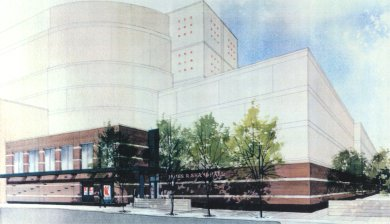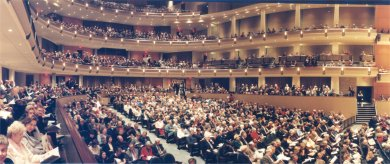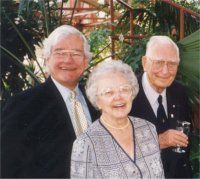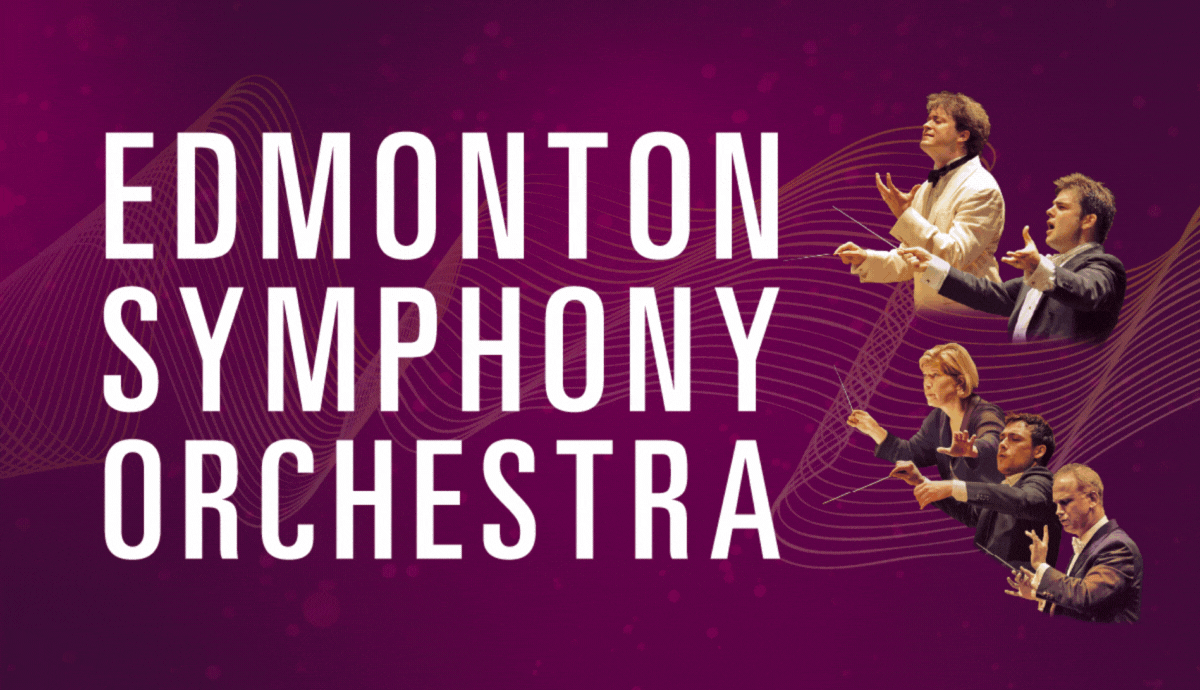History
Dr. Winspear's dream dated back a long way, and was a dream shared by many. When the Jubilee Auditoriums were built in Edmonton and Calgary (both opened in 1957), they graced each city with a multi-purpose facility designed for any and every type of performance. Each hall became the performance home for the respective orchestras in each city. But clearly, the reproduction of music in its clearest, most pristine form, fell outside the mandate of what each Jubilee Auditorium was meant to be.
At around the same time, another ad hoc committee was struck to study the feasibility of both building and sustaining a concert hall. In August, 1983, Tommy Banks' group and this new committee joined forces, and formalized themselves under the Edmonton Concert Hall Foundation name, with David Norwood as its president.
Its principal aim in these early days, of course, was to raise money – from government, corporate and private sources. Such a huge undertaking made this a long process. But one day in 1988, Dr. Francis G. Winspear made a proposal. The one-time ESO board member (he was on the first Edmonton Symphony Society board when it formed in 1952) and longstanding city philanthropist suggested that he could make a contribution. The amount of the contribution was unprecedented.
 Dr. Winspear made a donation of six million dollars, at that time the largest single private donation to a performing arts facility in Canadian history. The ball, it could be said, was definitely rolling. The Canadian federal government put up $15 million, while the Alberta government signed on with matching funds. The City of Edmonton leased the old police station site on the east side of Sir Winston Churchill Square to the Edmonton Concert Hall Foundation for 90 years, at one dollar a year, on land with a book value at that time of six million dollars.
Dr. Winspear made a donation of six million dollars, at that time the largest single private donation to a performing arts facility in Canadian history. The ball, it could be said, was definitely rolling. The Canadian federal government put up $15 million, while the Alberta government signed on with matching funds. The City of Edmonton leased the old police station site on the east side of Sir Winston Churchill Square to the Edmonton Concert Hall Foundation for 90 years, at one dollar a year, on land with a book value at that time of six million dollars.
The ECHF had to massively rethink its strategies when it appeared that costs for the intended hall could reach $60 million. A figure of $45 million was set, as both construction costs and to ensure an endowment fund could be established to maintain the hall. With $36 million already on the books, the community at large was looked to for the rest. Bob McPhee, CEO of the Edmonton Symphony at the time and liaison for the ESO, now took up the post of managing director of the concert hall foundation.
Many creative and worthwhile fundraising initiatives were undertaken, and the generosity of Edmontonians, and indeed other people and corporations from elsewhere, brought the Francis Winspear Centre for Music to fruition, "on time and on budget," to quote Bob McPhee, for its grand opening festival in September, 1997.
 From September 12 to 21, Winspearation '97 saw over 60,000 people pass through Edmonton's new Winspear Centre, and the word spread quickly around the world as to the excellence of the acoustics as well as the facility. In March of 1999, the Canadian Session and Touring Industry awards named the Francis Winspear Centre for Music the Performing Arts Centre of the Year.
From September 12 to 21, Winspearation '97 saw over 60,000 people pass through Edmonton's new Winspear Centre, and the word spread quickly around the world as to the excellence of the acoustics as well as the facility. In March of 1999, the Canadian Session and Touring Industry awards named the Francis Winspear Centre for Music the Performing Arts Centre of the Year.
Exciting plans are now underway to complete the original vision. The Winspear Completion Project will ensure that Dr. Winspear's dream that music can be accessed by anyone and everyone in our community comes true.

Dr. Francis G. Winspear (1903-1997)

Tommy Banks (1936-2018)

Philip Ponting
Member of Edmonton Symphony Society and Edmonton Concert Hall Foundation Boards, 1986 - 1996

Builders
The construction of the Winspear Centre was a labour of love and so many people played a role in the project throughout the years.



